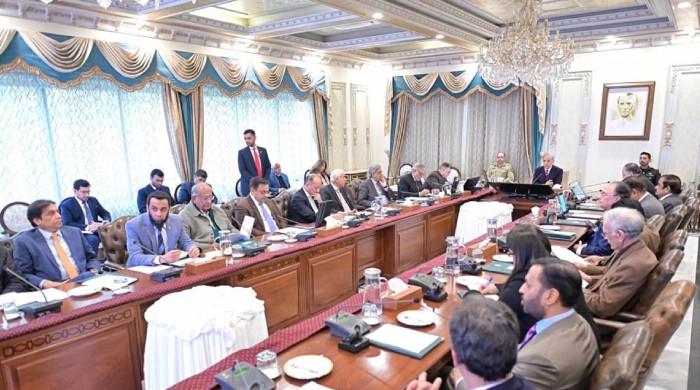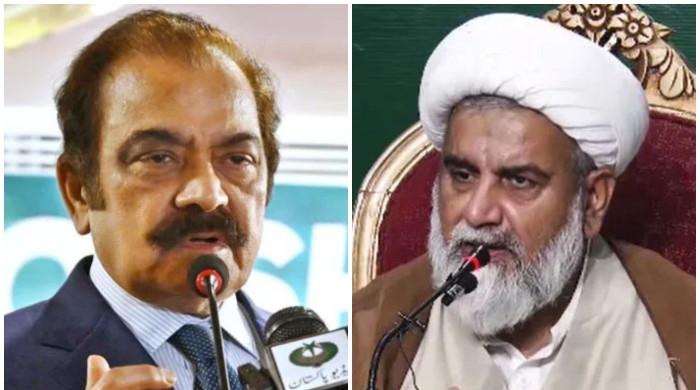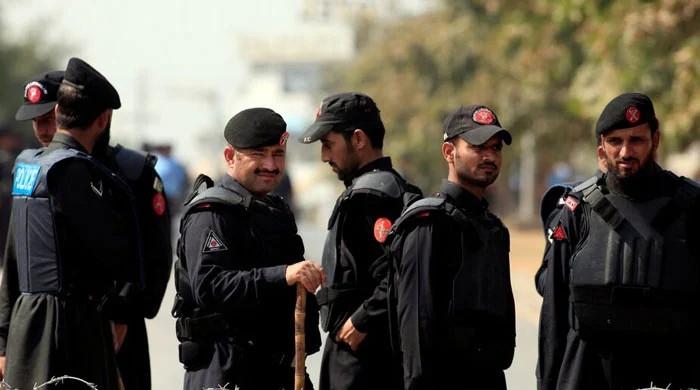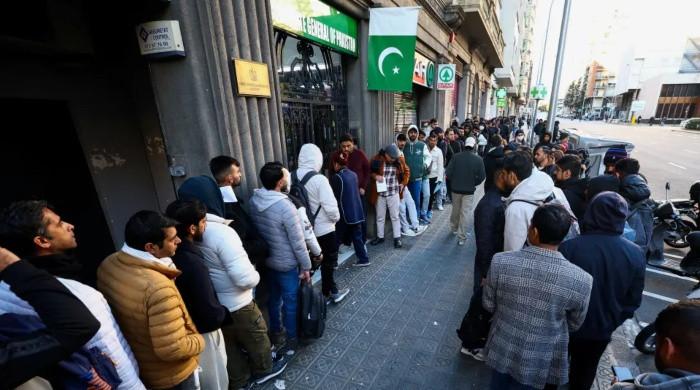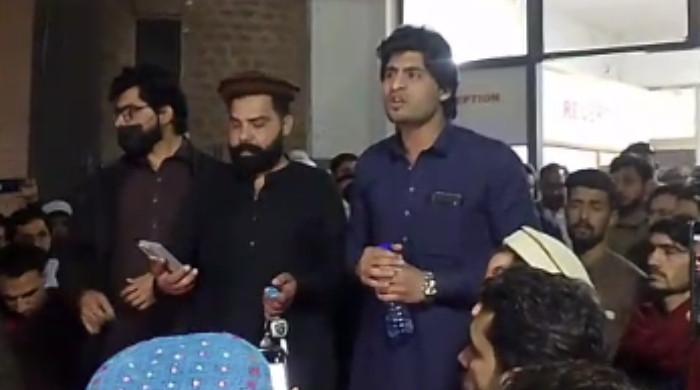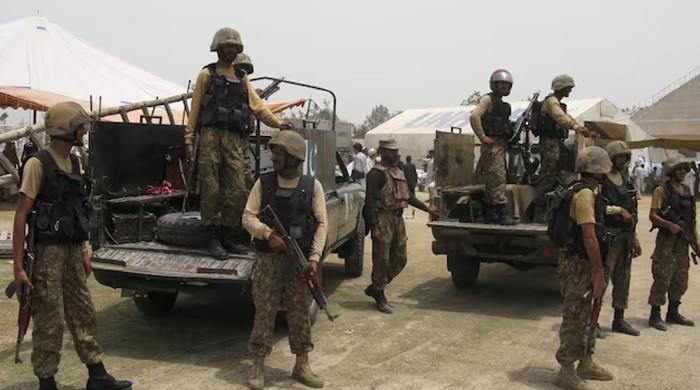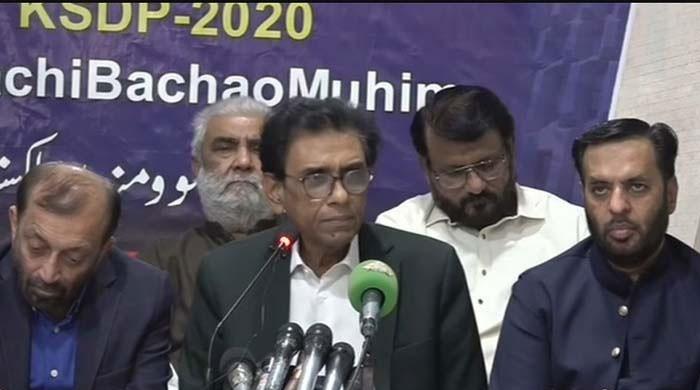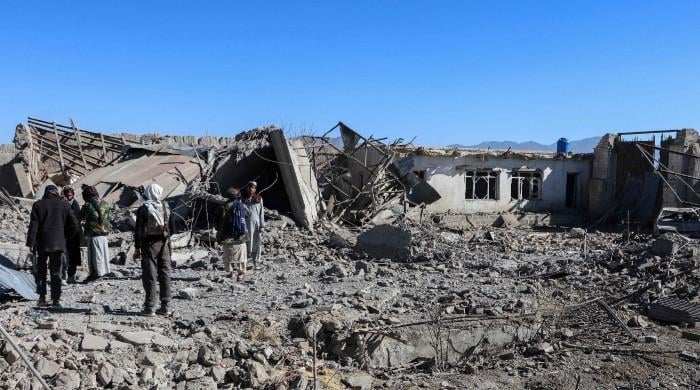How different is Modi's India?
Professor Stanley Wolpert said "the most troubling obstacle to Kashmir solution is the election of BJP-led govt dominated by anti-Muslim Hindutva extremists like Narendra Modi"
September 29, 2016
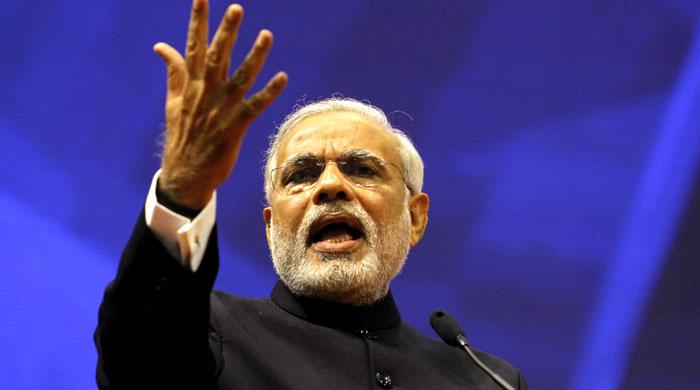
Prof. Stanley Wolpert in his famous book 'India and Pakistan' wrote, "the most troubling potential obstacle to the viability of Kashmir solution is the possibility of the election in India of another BJP-led government…dominated by anti-Muslim Hindutva extremists like Narendra Modi".
His fear was that Modi coming to power would mean all prospects would diminish for permanent peace between the two countries, without which no solution to Kashmir is possible.
How right he was, as BJP won the election, Modi got elected as prime minister, and peace diminished.
Modi's India is far more different: more extremist and with politics based on Hindutva, which has also damaged its image as a secular state. It is neither an India of Gandhi or Nehru. It is not even an India of Indra or BJP's Vajpayee.
He has made India hostage to his mindset, and tilted the country towards extremism. Today, even the President of the Indian Cricket Board is talking like a BJP spokesman, while BJP's militant wings are threatening Pakistani actors and actresses. The tone of a large section of India's mainstream electronic media also reflects the same mindset.
India has ended cricketing ties with Pakistan and made sports hostage to Modi's way of dealing with Pakistan, and that too in a negative sense. He knew people of the two countries love to see cricket between themselves, but the last one-day series was held in 2013, while the last full tour of Pakistan to India was in 2008.
This is how India has changed under Modi and his extremist mindset.
Once, cricket was used for the revival of ties between the two countries and use to be called 'cricket diplomacy', which started in the era of the late General Zia ul Haq.
Even Bollywood under Modi has changed, and not only Pakistani artists have been threatened, at times concerts disrupted, but even the saner voices from the Indian film industry have also come under attack.
All this is Modi's India, which has defamed the secular face of the South Asian nation. Even secular parties like Congress, Communist Party of India, and other parties become hostage to one man's mindset.
No wonder why some friends from India say, "It's not shining India, but extremist India."
One must appreciate the saner voices from India in this difficult time within our hostile neighbor. How well-noted Indian actor Om Puri, producer Karan Johar, Salman Khan, Shahrukh Khan, and Indian journalists like Barkha Dutt and many more have responded.
Modi's India is a challenge not for Pakistan but for India itself. It is a challenge to democratic and secular India, and a challenge to India's professional journalism.
India's jingoism is Modi's politics as through his 'hate Pakistan' policy his eyes are on the next elections.
Prior to Modi's election, the Indian government had never opposed a visiting Pakistani president or prime minister from meeting Kashmiri leaders. But, in his government, it has become a matter of controversy.
Some in India were expecting major economic reforms under his government and economic stability links with peace, which Modi's government is not interested in.
His handling of Kashmir is more brutal: there have been more violations of human rights and some of the leaders of his own allies have left him because of his inhumane policies.
Pakistani leaders over the years – whether civilian leaders or military dictators — have wanted peace with India. From General Zia ul Haq to General Pervez Musharraf, all went too far in their efforts for peace with India.
Similarly, the civilian leadership from Benazir Bhutto to Nawaz Sharif all went out of their way to improve relations with the country's neighbours.
Pakistan never even went to the extent of breaking cricketing or cultural ties with India.
Yes, for years we had problems with extremism and terrorism, but it is also true that since September 11 2001, it is Pakistan's state policy to eliminate terrorism and extremism.
No country has given so much sacrifice as Pakistan has in this war. It has lost over 65,000 people and yet, from Swat to North Wazirstan, it has broken the backbone of the terrorists. Operation Zarb-e-Azb and the National Action Plan were landmark decisions.
The Pakistani electorate have always voted for liberal and moderate voices, which itself reflected the voters' mindset as well. From PPP to PML-N and from PTI to ANP, all parties, including religious parties like JUI-F and JI, want to resolve all outstanding issues, including Kashmir, with India.
Perhaps, that is the reason why no war hysteria has been created either by the media or even by the civilian and military leadership in response to what is going on within India.
Pakistan's response to the violation on the Line of Control has been reactive and of restraint, and this is exactly how DG ISPR Lt.General Asim Bajwa replied when asked about Pakistan's response. "We will respond and are ready for that, but would not act first."
India knows well that the present uprising in Indian Occupied Kashmir is indigenous but is using the brute force to crush the movement.
Nuclear states also know that they cannot fight, but can destroy.
Those who even think about the possibility of any such war would be advised to go through the history of Hiroshima and Nagasaki, the two Japanese cities which have still not fully recovered from the worst ever disaster in human history in the second World War. So, it was shocking to hear from a responsible Indian minister speaking so irresponsibly about nuclear war with Pakistan.
Kashmir is a dispute between India and Pakistan and the people of Kashmir are the key stakeholders. India knows that it cannot escape from recognising and addressing it, and the sooner the better.
So, when Indian Foreign Minister Sushma Swaraj said in her speech in the United Nations that Kashmir is an integral part of India, it was historically wrong. She not only negated her country's own history but also that of the UN.
Whether the world gave any value to the resolutions on Kashmir moved by India, and provides solution to the problem some 60 years back or not, no one could deny this historic fact. Had Kashmir been an integral part of India, it would not have gone to the UN.
Some 40 years ago, if nothing else, both India and Pakistan had agreed to resolve all outstanding issues, including Kashmir, through bilateral talks. So, if India today has gone so low that it talks of breaking the Indus Water Treaty unilaterally, it is not possible.
India also knows that it has started a nuclear arms race when it carried out the first nuclear test a few years after the 1971 war. Pakistan's former Prime Minister, Zulfiqar Ali Bhutto, followed suit because the world did not stop India from becoming a nuclear power. History repeated itself in 1998, and Pakistan only responded and became a nuclear state.
No other country in the world has given so many sacrifices as Pakistan in this war, which historically was not even our war but that of the CIA. We became the victim and, till this day, have given sacrifices of over 65,000 people including thousands of our soldiers.
If India is really a true democratic and secular country, why is it trying to escape plebiscite? Is any such demand undemocratic and needs to be crushed by brute force? How can you brand an indigenous uprising as 'terrorism'? Why has India never had a stable government?
The best solution to the problem was, in fact, proposed by India itself 60 years ago before the United Nations: to accept the right of self-determination.
Had Indian Occupied Kashmir been an integral part of India, as claimed by Indian Foreign Minister Sushma Swaraj in her speech on Monday, why from Shimla to Lahore and from Lahore to Agra, it has been recognised as a 'dispute' between the two countries?
Why is India avoiding plebiscite? Let the people decide their own destination. Is it not a democratic right of the people of a disputed territory? India has every right to take its position on Kashmir during talks, but it has to recognise it as a dispute.
The way forward is in talks, and not in talk of war. One understands the BJP mindset would not follow the famous verse of Ali Sardar Jaffery's poem 'Jang khud aik masla hay'.
How come a country would itself go to the UN for a solution to Kashmir, had Kashmir been its integral part? I am sure Sushma Swaraj jee knows that.
There is still no war hysteria in Pakistan and, even in these tensions, resumption of the train service 'Samjotha Express' after a day-long suspension become the Pakistani media's front page photograph.
India needs to come out of Modi's mindset, which has threatened the country, its society, and its political culture. Pakistan is ready for talks as PM Sharif time and again has said, 'War is no solution, it is a problem."
—The writer is a senior columnist and analyst of GEO, The News, and Jang.




